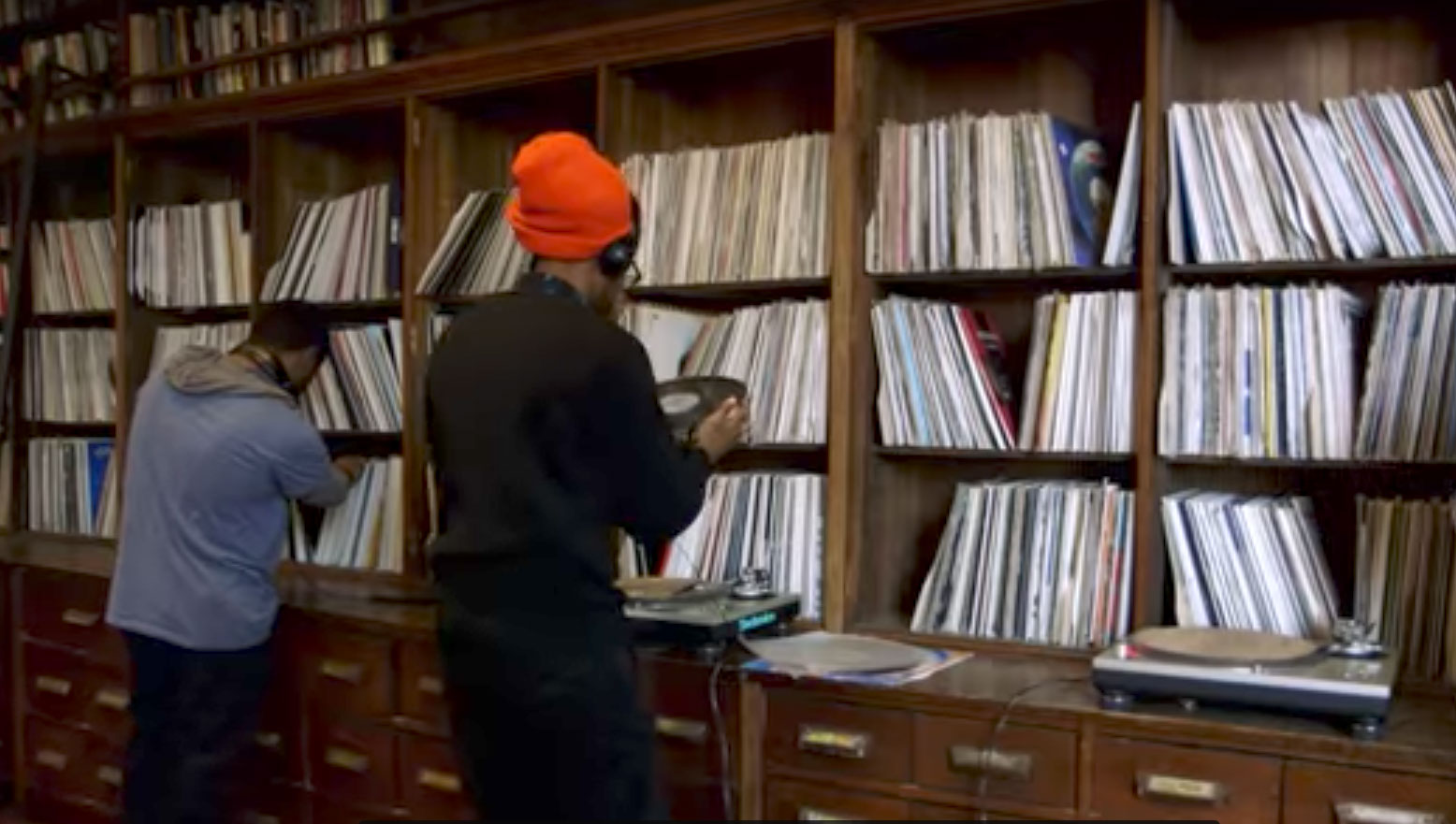
Look at Theaster Gates’ incredible record and book collections
New video shows how the US artist and activist repurposes collections to uncover new perspectives on culture
Chicago’s Prairie Avenue Bookshop was one of the greatest architectural book stores in the world, right up until its closure in the summer of 2009. Unable to find a buyer for the business its owners passed the shop’s 1400 books on to another Chicago citizen with a keen interest in art, architecture and heritage, Theaster Gates.
As Gates explains in this Art 21 video, collections such as the Prairie Avenue bequest interest him because, as he says, “they constitute one institution's way of seeing the world. I take a lot of time looking for the personality of people within a collection,” he adds.

While this might sound like a strange medium for an artist to work within, it's worth remembering that Gates has already repurposed religious music, pottery, roofer's tar and real-estate development to serve his artistic ends. As Lisa Lee explains in our Gates monograph, “his efforts are informed by vernacular craft and ritual, the fields of urban planning and preservation, the radical creativity of the black diasporic intellectual tradition, his voracious appetite for ideas and his personal family history.”
The Praire Avenue bequest is now housed alongside the Dr Wax collection – a collection of records and CDs Gates acquired from another venerable Chicago store which closed in 2010 – in the Listening House, a new, social centre founded by the artist's Rebuild Foundation, housed inside an old sweet shop.
The Listening House also contains portions of the Johnson Publishing Library – the magazine collection once belonging to the publishers of black-interest titles such as Jet and Ebony.
Gates’ Stony Island Arts Bank – a once-derelict financial institution which now serves as a community arts facility – also has portions of the Johnson library, as well as the record collection once belonging to the house music pioneer Frankie Kunckles.
Yet Gates doesn’t simply see his collections as part of a community lending library. The video shows him reworking bound editions of Jet into abstract collages, with each pigment representing a distinct decade in the public lives of African Americans, as described in Jet’s pages.
“My hope is that the history and content that’s loaded inside these books will be there, waiting for people to unearth it,” Gates says. For more on his art, life and outlook get a copy of our Theaster Gates book here.